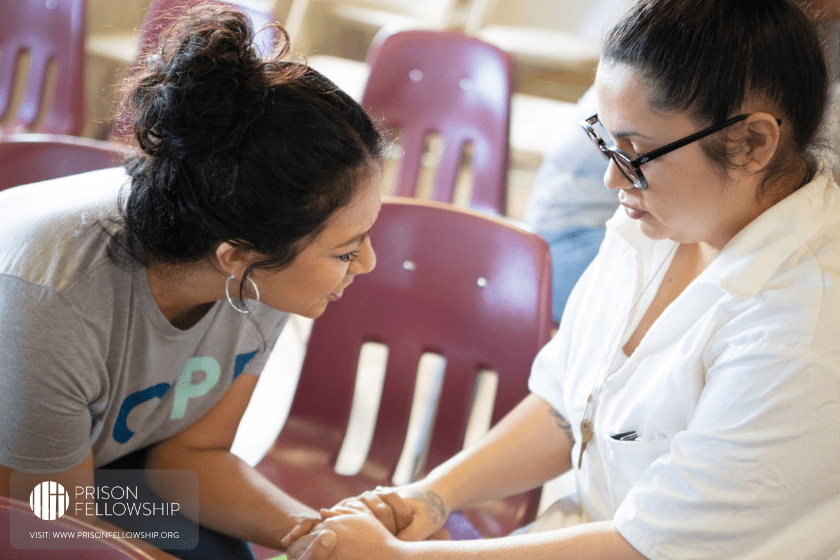
Caring for those leaving the prison system is an essential, yet often overlooked, ministry in the Church. Formerly incarcerated people face numerous barriers as they attempt to reintegrate into society, from legal challenges to social stigma, and they are very vulnerable individuals in our communities. As the Church, we have a unique opportunity to welcome former prisoners through hospitality and care, helping them navigate a new life outside of incarceration.
Previously incarcerated individuals reentering society encounter a web of legal obstacles that often make it difficult to rebuild their lives. According to Prison Fellowship®, there are more than 44,000 legal “collateral consequences” tied to a criminal conviction, including bans on welfare benefits and public housing. These barriers can prevent individuals from accessing basic necessities like food, shelter, and healthcare.
Without support, the odds are stacked against them. Nearly 700,000 prisoners are released each year, but two out of three are rearrested within three years. Many of these rearrests occur due to parole violations rather than new crimes, reflecting a cycle that is hard to break without help. As the Church, we can step in and offer practical solutions—through hospitality and care—that make a lasting difference.
What Does Hospitality Look Like?
When we think about hospitality, we often picture hosting meals or offering a place to stay, but hospitality can go much deeper. For former prisoners, hospitality means creating spaces of belonging, where they are treated with dignity and respect. It means helping them access the resources they need to reintegrate into society.
Churches can play a crucial role in providing former prisoners with housing support, mentorship, job assistance, and friendship. Many formerly incarcerated people leave prison with few possessions and little money, and finding stable housing is one of the most significant hurdles. Churches can partner with local organizations or even offer temporary housing through congregation members to help meet this need.
Here are a few practical ways churches can extend hospitality and care for previously incarcerated people:
- Housing Assistance: Housing is a critical need. Churches can connect former prisoners with housing programs, assist them in navigating legal housing obstacles, or even offer temporary shelter in homes or church facilities.
- Job Support: Employment is a major hurdle for former prisoners, many of whom face discrimination due to their criminal records. Churches can offer job training, resume-building workshops, and network connections to help them find stable employment. Congregation members who own businesses could also consider offering positions to former prisoners seeking a fresh start.
- Mentorship Programs: A mentor can be a vital source of support, offering guidance and encouragement as former prisoners work to rebuild their lives. Churches can establish mentorship programs that provide consistent emotional and spiritual support, helping individuals navigate the challenges of reentry.
- Basic Needs: Churches can meet immediate needs by organizing clothing drives, offering hygiene kits, or providing transportation assistance. Meeting these basic needs can go a long way in helping former prisoners start their new lives on the right foot.
The Role of the Church in Restoration
Previously incarcerated people are often weighed down by shame and feel defined by their past mistakes. The Church has the opportunity to speak truth into their lives—truth about grace, forgiveness, and second chances. When we open our doors and hearts to them, we help them see that they are not defined by their past but by their identity as image-bearers of God.
Local churches have the potential to be powerful agents of change, offering former prisoners the dignity and respect they deserve while helping them integrate back into their communities.
Supporting former prisoners through hospitality and care is not just an act of charity; it is an expression of the gospel. By offering practical help, friendship, and a sense of belonging, the Church can transform lives and help break the cycle of re-offense.
Are we willing to open our doors, show compassion, and offer hope to those seeking to rebuild their lives? In doing so, we reflect the heart of God, who welcomes all of us with grace and mercy. Together, we can be agents of restoration, offering formerly incarcerated people the chance for a new beginning.
Photo courtesy of Prison Fellowship®. Prison Fellowship® is the nation’s largest Christian nonprofit equipping the Church to serve currently and formerly incarcerated people and their families, and to advocate for justice and human dignity both inside and outside of prison.



